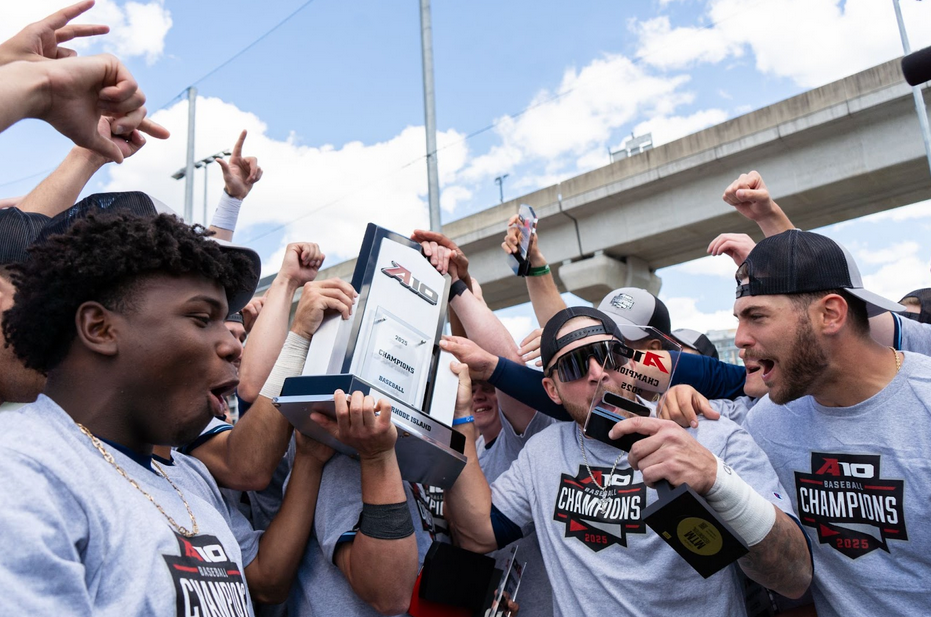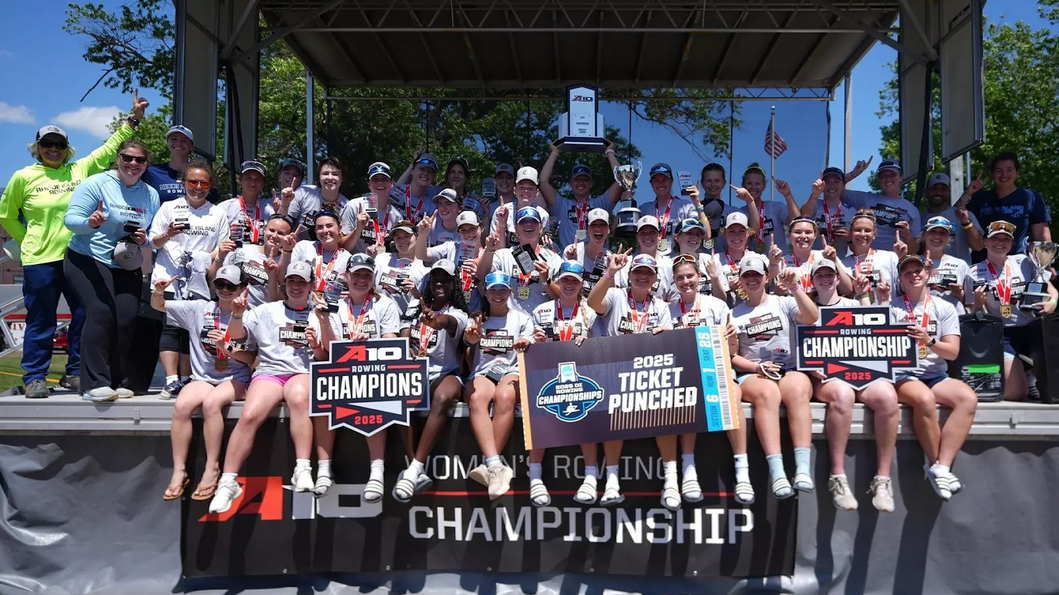Tennis is a sport that is equally demanding physically as it is mentally. It is a sport where the burden to achieve excellence rests on the shoulders of the individual. The court is unforgiving and relentless to those who are not equipped to handle such pressure, but the players who find the balance between skill and composure exhibit the usually unattainable feeling of conquering your demons.
These are the players who do not stand 50 feet on the other side of the net but rather exist in every swing, movement and carefully placed action that they make. That feat is made more difficult, yet that much more gratifying, when a person is faced with a rare medical condition.
Senior Wilfredo Tangui, the inaugural president for the University of Rhode Island tennis club team and one of its founding members, has strived to push through his own obstacles, which in his case first arose when he was diagnosed with pulmonary stenosis at just two weeks old. The heart condition, one so rare as to be the first documented case in New England in over 40 years, occurs when the valves that control blood flow to the heart are not operating properly. Tangui was told at the age of 12 that he could no longer participate in contact sports. His aspirations to be nationally ranked in karate were effectively put on hold when he was told that he would need open heart surgery, which could alter his life, never mind his extra-curricular activities.
“For them to tell me that I would never be able to play sports again, there was a lot of despair, a lot of hopelessness, like ‘what am I going to be able to do?’,” Tangui said.
Tangui, a native of Providence, Rhode Island, had a successful surgery and left his ordeal with the determination that, after countless hours of rehabilitation, he would one day become reacquainted with his love for sports. When he did, tennis was there waiting for him.
“When I got here as a freshman there was no club tennis team,” Tangui said. “I wanted to create a club team but I was a little more focused on my major because I’m pre-med and I wanted to become a doctor. Then my high school friend Richmond [Hout] came in when I was a sophomore and we met a girl named Celia Dunn, and all three of us really wanted to create the club.”
It was a long process to officially establishing URI’s first ever co-ed club team, as the founding members had to stand before the Club Sports and Intramural Council (CSIC) and convince the board why they should make Tangui’s dream a reality, not just for himself but for fellow students, especially males since URI does not have a men’s varsity tennis team. The team was ultimately approved and has now reached depths that were truly unfathomable before Tangui and his friends enrolled at the University, as it was recently named New England’s Tennis on Campus (TOC) Club of the Year.
The prestigious honor earned Tangui and company a historic trip to Orlando, Florida where they competed in the TOC National Championships, which were sponsored by the United States Tennis Association. They did not advance past pool play, but the experience was something that will help the vastly improving group. Tangui knew that Nationals were a possibility after seeing how the team has grown.
“I think for how long our team has been around we’ve done very well in terms of being efficient,” Tangui said. “Each year we always sit down with our board members and try to figure out what areas in being a club are we lacking and what do we need to improve.”
The team has made significant strides in their play over the past three years, but it was their exemplary fundraising efforts that earned them club of the year honors and thus gave them an automatic bid to Nationals. One cause that the club is especially devoted to, and one that holds is of special importance Tangui is the Gabrielle Dinsmore Heart and Hope Fund.
The group’s mission is to “provide educational, emotional, recreational and financial support to children and families living in RI, CT and MA impacted by congenital heart disease, heart defects and severe feeding issues.” Tangui has been active as a mentor to children there who have faced similar adversity.
“When I had my surgery when I was 12 years old I was told I probably would never be able to play sports again,” Tangui said. “For two years, I worked incredibly hard to rehabilitate myself. I had to relearn how to walk. I would take like an hour to walk around my block. And then a few months passed by and I was able to jog again after a few more months I was able to run.”
After two years of recovery and rehabilitation, Tangui found out all of his determination and hard work would pay off when he was cleared to play noncontact sports. He practiced eight hours a day to hone his skill and rise to second singles on his high school team.
When he wasn’t on the court, he used Japanese anime as inspiration to propel him forward. He related with the protagonists in that they had a clear obstacle they wanted to overcome, much like he knew he would move past his pulmonary stenosis. He received a replacement valve during the surgery, and although he may one day need a replacement, Tangui is presently in good health.
Tangui has built a legacy with the club tennis team that he hopes will live on long after he is gone, as the team’s focus is on developing character as much as it is skill.
“I hope that this club team really lasts a long time,” Tangui said. “Every time we have our weekly or monthly meetings with our officers we always talk about how we can improve the team, but also ourselves, since we are the role models for our players.”
Tangui will graduate this spring, as his next obstacle is becoming a doctor, where he will hope to show the same resolve that has carried him through his time as one of the trailblazers for URI’s club tennis team.



